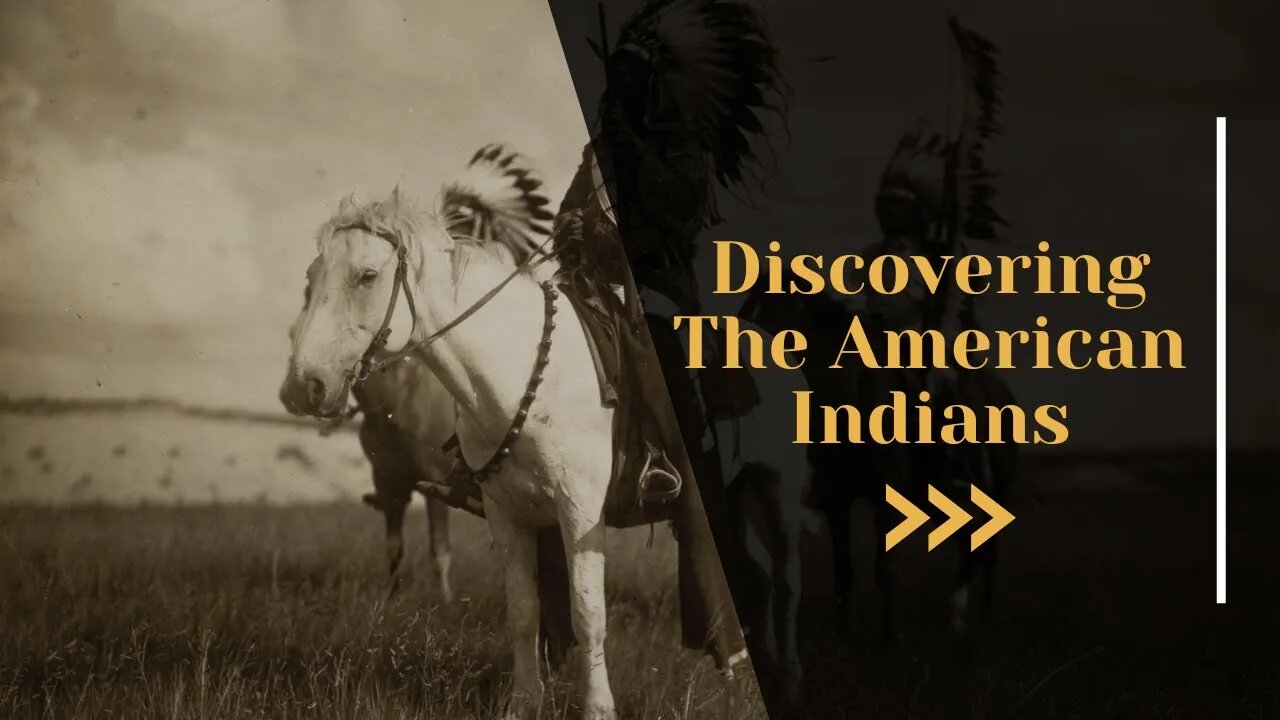Premium Only Content

The Untold Stories of American Indians: Exploring Their Culture and Heritage
The term "American Indians" or "Native Americans" refers to the indigenous peoples who inhabited the lands that make up modern-day United States prior to European colonization. These diverse groups of people have a rich history, culture, and traditions that have been shaped by thousands of years of living in harmony with their environment.
Background:
The history of American Indians can be traced back to over 12,000 years ago when the first indigenous peoples crossed the Bering Strait from Asia to North America. These people, known as the Paleo-Indians, were hunters and gatherers who relied on the land for their survival. Over time, various tribes and cultures developed, each with its own unique way of life and customs.
History:
The arrival of Europeans in the 15th and 16th centuries marked a turning point in the history of American Indians. The Europeans brought with them diseases that the native populations had never been exposed to, resulting in widespread illness and death. Additionally, the Europeans brought a new way of life that clashed with the traditional ways of the native peoples, leading to conflicts and the loss of land and resources.
Throughout the 17th and 18th centuries, European colonists continued to push westward, forcing many American Indians to relocate to less desirable lands. The 19th century saw the implementation of the Indian Removal Act, which led to the forced relocation of thousands of American Indians to Indian Territory in what is now Oklahoma. This period is known as the Trail of Tears, and it resulted in the deaths of thousands of American Indians.
In the late 19th and early 20th centuries, the US government attempted to assimilate American Indians into mainstream American culture by forcing them to attend boarding schools, where they were taught to abandon their traditional ways of life and customs. This period is known as the Assimilation Era and it had a lasting impact on the culture and identity of many American Indian communities.
Today, American Indians make up approximately 2% of the US population, and there are over 570 federally recognized tribes in the United States. American Indians continue to face challenges related to economic opportunity, access to healthcare, and preserving their cultural heritage.
Culture and Traditions:
American Indian culture is incredibly diverse, with each tribe having its own unique customs and traditions. However, there are some common threads that run throughout many American Indian cultures. For example, many tribes place a strong emphasis on oral storytelling as a way of passing down history, traditions, and values from one generation to the next.
Additionally, many American Indian cultures have a deep connection to nature and the environment, and they place a strong emphasis on preserving and protecting the natural world. Many American Indians also have a rich tradition of art, including pottery, beadwork, and basket weaving.
Religion and spirituality also play an important role in many American Indian cultures. Many tribes have their own unique religious practices and beliefs, but many also share a belief in a universal creator and a deep reverence for the natural world.
Conclusion:
American Indians have a long and complex history, and their culture and traditions continue to thrive despite centuries of mistreatment and discrimination.
Affiliate Information: This video and the description can contain affiliation links, which means that if you click on one of the links of the product, I will receive a small commission.
Build and Organize a Detailed and Customizable Trip or Event Plan From Scratch!
https://clk.tradedoubler.com/click?p=324547&a=3296431&url=https%3A%2F%2Fwww.planiversity.com%2Fstaging%2F
American Indians
https://amzn.to/40qjqAA
-
 LIVE
LIVE
Due Dissidence
10 hours agoTrump Calls To "CLEAN OUT" Gaza, Swiss ARREST Pro-Palestine Journalist, MAGA's Hollywood Makeover?
3,758 watching -

Nerdrotic
3 hours ago $7.89 earnedDECLASSIFIED: JFK, MLK UFO Immaculate Constellation Doc | Forbidden Frontier #089
34.4K2 -
 LIVE
LIVE
vivafrei
10 hours agoEp. 248: "Bitcoin Jesus" Begs Trump! Rekieta Gets Plea Deal! Pardons, Deportations, Bird Flu & MORE!
11,722 watching -
 3:44:06
3:44:06
Rising Rhino
9 hours ago $10.97 earnedWashington Commanders Vs Philadelphia Eagles: NFL NFC Championship LIVE Watch Party
38.1K3 -
 13:00
13:00
Exploring With Nug
4 hours ago $2.53 earnedHe Went To Get A Haircut And Vanished WIthout a Trace!
26.9K -
 18:53
18:53
DeVory Darkins
1 day ago $24.07 earnedTrump JUST ENDED Mayor Karen Bass During HEATED Meeting
59.3K184 -
 21:06
21:06
Russell Brand
7 hours agoIT'S COMING
108K331 -
 21:26
21:26
Stephen Gardner
1 day ago🔥What JUST leaked out of Congress must be STOPPED NOW!
116K253 -
 53:25
53:25
tether
11 days agoStability and Freedom in Chaos: The Story of Tether USD₮ | Tether Documentary (USDT)
132K5 -
 56:44
56:44
VSiNLive
2 days agoFollow the Money with Mitch Moss & Pauly Howard | Hour 1
72.1K2